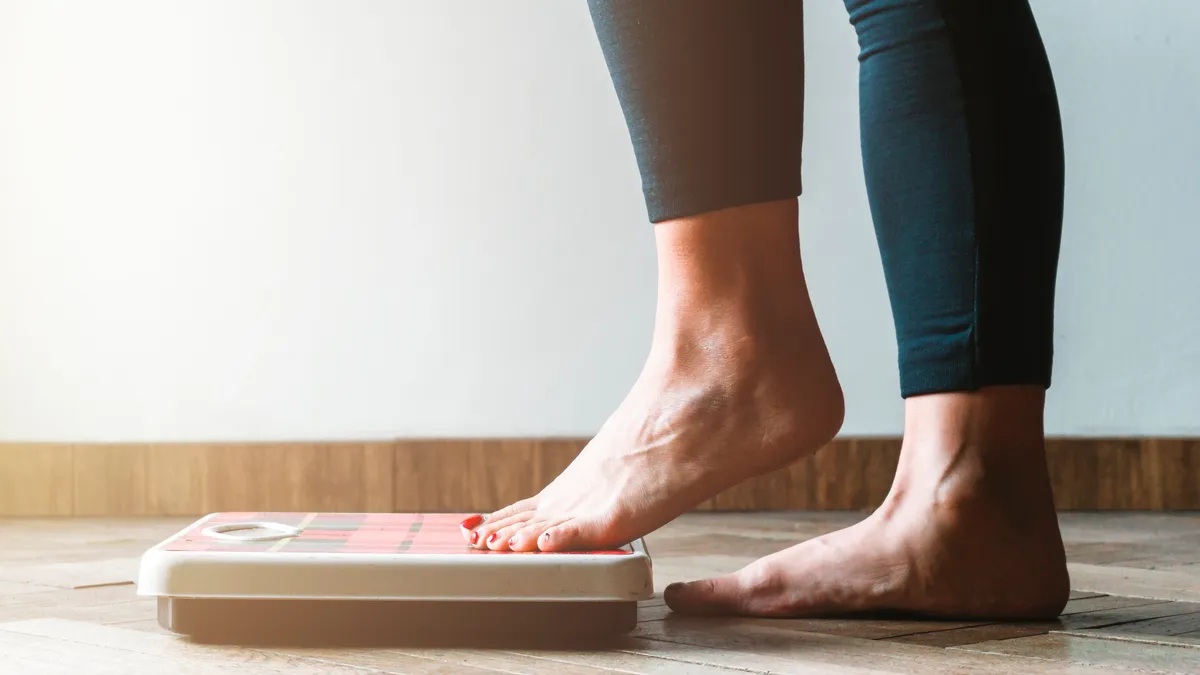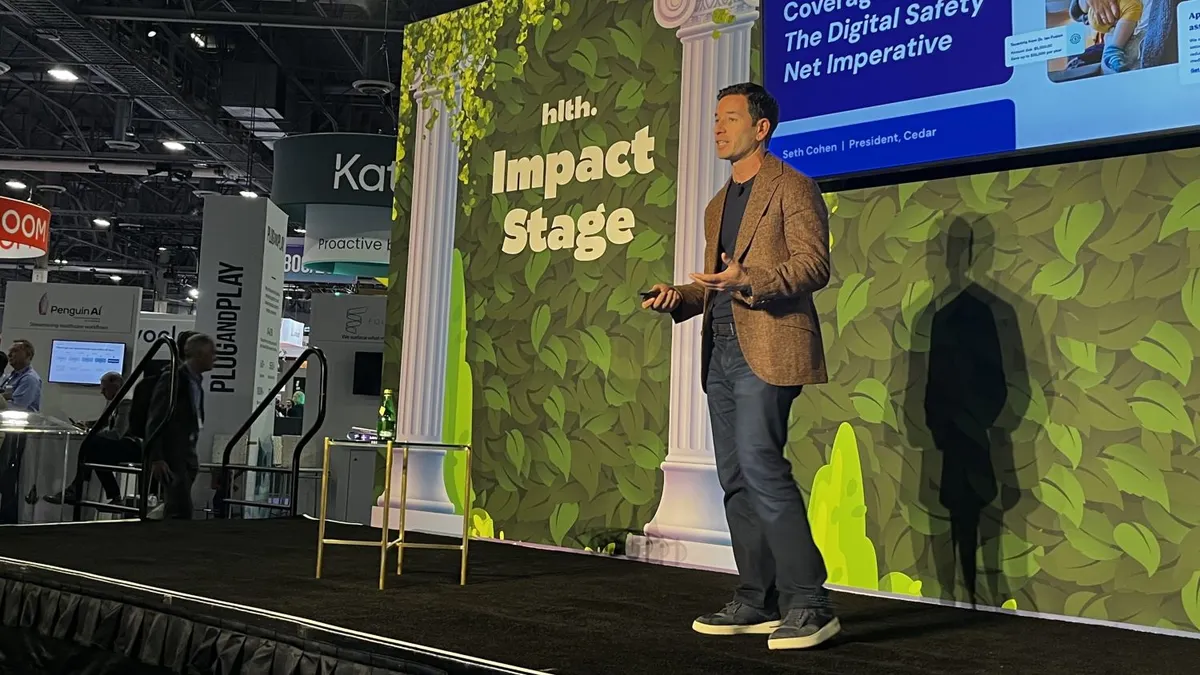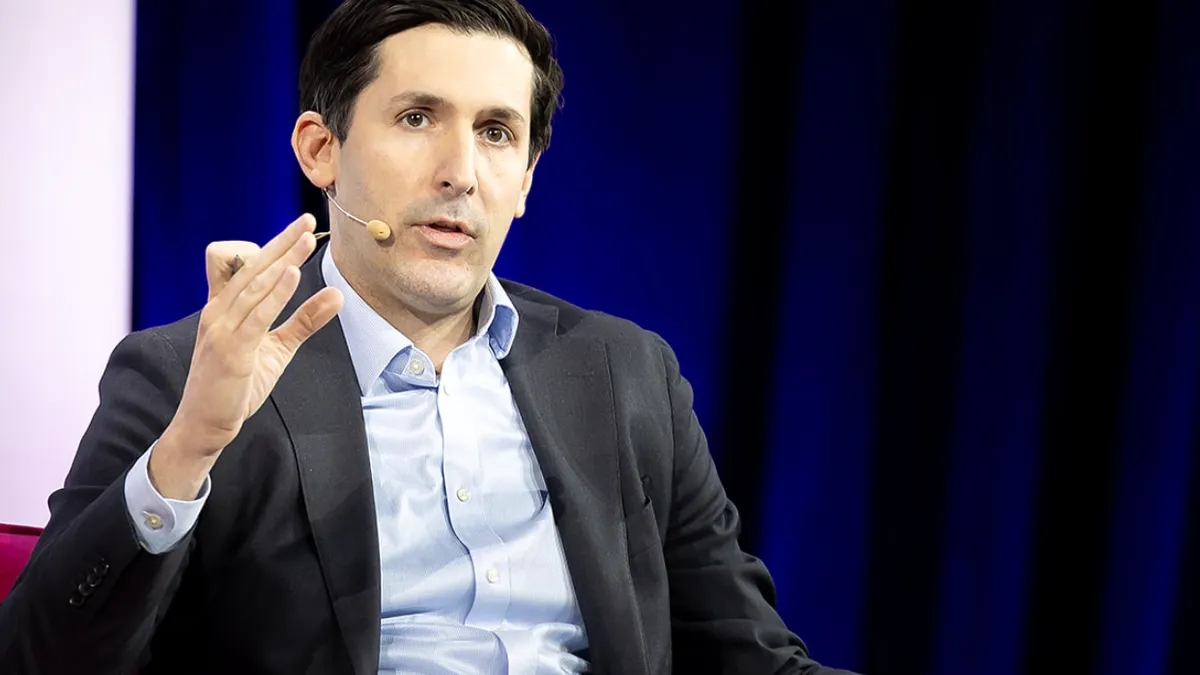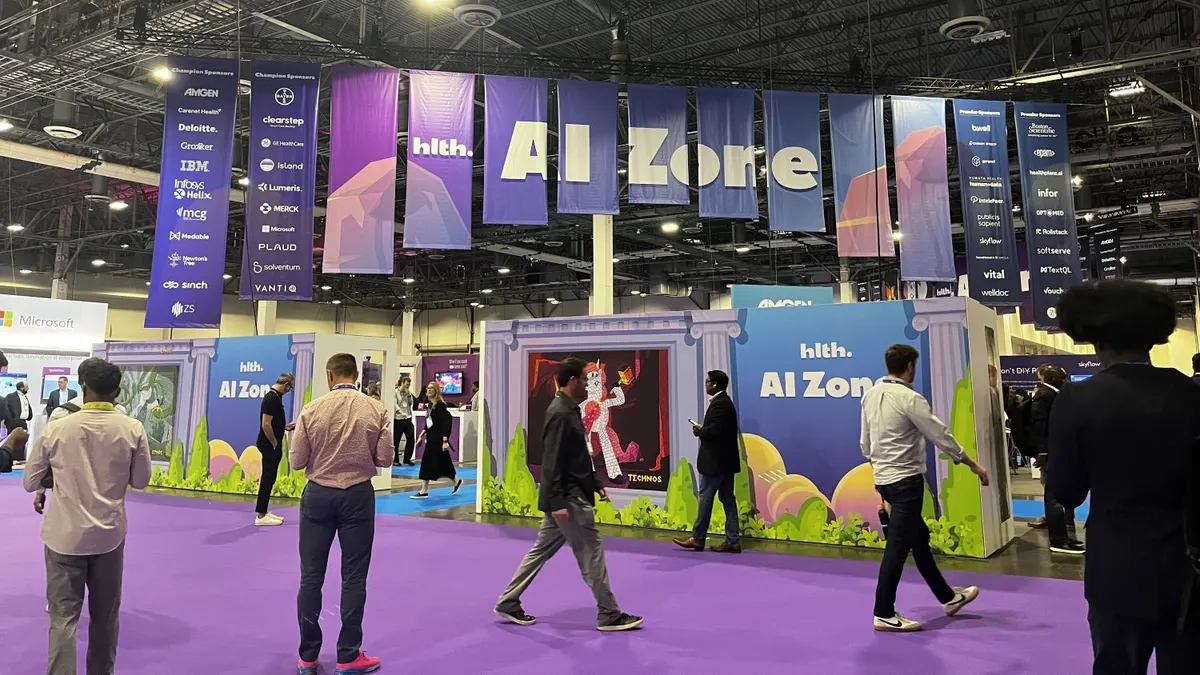LAS VEGAS — American Nurses Association President Jennifer Mensik Kennedy says industry pressures are coalescing to worsen nursing shortages.
Studies estimate the U.S. will need 1.2 million new registered nurses by 2030 to meet care demands. The ANA, American Hospital Association and health systems have doggedly called for solutions to the growing labor crisis for years, with some health systems opting to acquire their own nursing schools to ensure sufficient pipelines of talent.
Still, Kennedy says barriers remain to educating, recruiting and retaining quality nurses. Some problems are old hat — for example, it’s difficult to entice nurses to take a pay cut to become a nurse educator. However, new challenges are of the cultural and political moment, according to Kennedy, including developing strategies to retain nurses burnt out by patients peddling misinformation.
“It reminds the nurses — who were around during COVID — of the rise in workplace violence, and nurses being attacked when there were disagreements,” Kennedy told Healthcare Dive at the sidelines of the HLTH 2025 conference. “It’s all this stress.”
Editor’s note: This interview has been edited for clarity and brevity.
HEALTHCARE DIVE: For years, the industry has said we have a massive shortage of nurses in the U.S. and that the problem is worsening. From the ANA’s perspective, what is the industry doing to combat the shortage?
JENNIFER MENSIK KENNEDY: It seems like we always have a shortage. I had a shortage when I just started [as a nurse over 20 years ago]. However, the reasons change. Now, the main piece is, when we had Obamacare passed, there was a National Workforce Committee that they were supposed to stand up that they never stood up. That was to see, nationwide, how many nurses do we need? How many physicians do we need? Where do we need them? So we don't have a national plan. States are trying to manage this.
Then, in the Big Beautiful Bill, they took out all of the nursing education funding — all of it. And so schools are already panicked looking at what they can do, because you can't just bring on more students with less funding.
Some of that is because there’s not enough faculty at nursing programs. There was a bill introduced in the House and Senate [last year] — it didn’t go anywhere — that would have pushed for nurse faculty parity payment, where we pay nurse faculty equal to those nurses in other settings. I support legislation like that or legislation proposed this year addressing education financing.
One eye-opening piece is that nursing education funding is through [the Health Resources and Services Administration], and it's volatile. It's up to administrations and the budget. When we look at physician education [funding] it's constant. It's funded through CMS. Nursing, even though we're much a larger workforce, we only get one-fiftieth of what the physicians get for education in this country.
Where is artificial intelligence in terms of helping to fill some of these workforce shortages?
The American Nurses Association has different position papers on virtual nursing and AI, but what we say clearly is that it is supplemental; it does not replace a nurse.
When I think about nursing care today, there's a ton of research on missed care from a nursing by omission, just because there's too many patients, and nurses can't get to surveillance activities, pain reassessments, care coordination or discharge education. So about 56% of care is missed on average. When we look at the activities AI can do, it can help us with some of those pieces.
But just because it helps us doesn't mean nurses are going to have more time for more patients. They're just going to be able to take care of the patients more completely. We're going to see less missed care, but we can't also then say, okay, you're more efficient because of AI, so now you can take more patients.
I was in a session earlier today where a health system said, “We're not going to invest in agentic AI in a clinical setting unless it would allow us to be more efficient or reduce our staffing.” When you hear a statement like that, does it worry you?
You know, it does worry me, because I think the wrong people are at the table. We need to have the nurses who are doing the care at the table with decision-makers. We have not made changes or improvements in patient care and that's because we keep thinking technology is going to save us and that we don't need human beings.
I want to talk about what it's like to be a nurse right now. The federal government is changing vaccine guidelines. Standards for some care, like gender-affirming care, can vary based on where you live. How is this impacting your workforce?
When you have a different standard of care in New York and a different standard of care in Texas, it's very, very hard. And so from our perspective, we have policies on vaccines, but we had to go back and update our policies to not actually reference the [Advisory Committee on Immunization Practices] and [Centers for Disease Control and Prevention], because we're concerned with some of the statements they are making.
We're pointing to the vaccine evidence that is in the literature, which is tough because we have fragmented groups. We have the West Coast Alliance, the Northeast Alliance and different organizations providing similar information, but it's really hard for someone to find what they need.
This is kind of like back to COVID, right? When we were in COVID, people didn't want the COVID vaccine because they were like, “Well, I don't trust the science.” But they came in to get treated for everything else.
So it really put an extra level of burden on nurses and other providers to say, “Let's talk through all of these treatments you keep hearing from your friends that are not evidence based.” Nurses want to take care of people and make them well, and if patients are not going to take the evidence advice, that's really stressful, especially when you see children you know aren’t vaccinated.
I've seen people post [on social media] thinking that they caused their child's autism because they took Tylenol. The shame that we're putting on women in this country is horrible, and so nurses are having to go out and reeducate and have conversations about what correlation versus causation is.
How do nurses weather that added strain?
It’s tough, because resilience is not something you should need to show up with every single day. But now, every day is getting to be that stressful day, and nobody can weather that every single day.
And so this is increasing turnover. We have a large amount of mostly newer, younger nurses who say they will not be here in a year. I think it's 36% of new grad nurses say “I'm leaving this organization in the next year because the stress is so great.”























